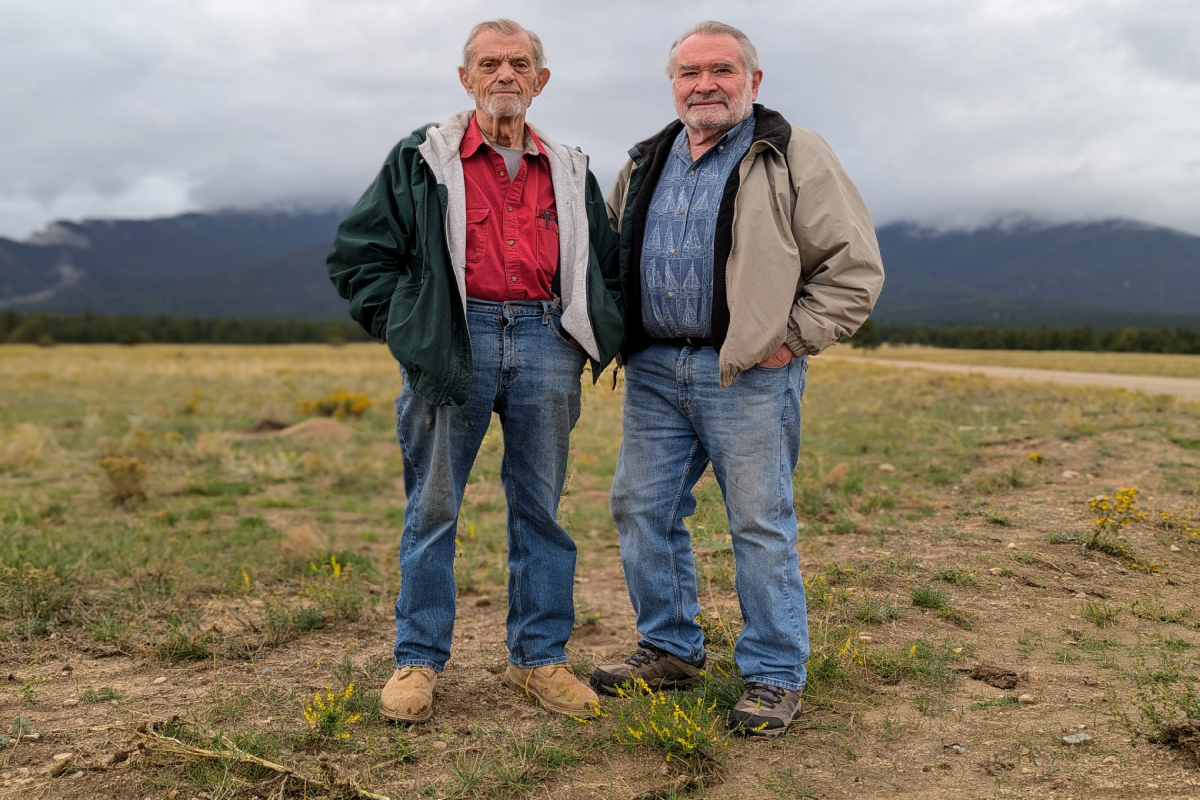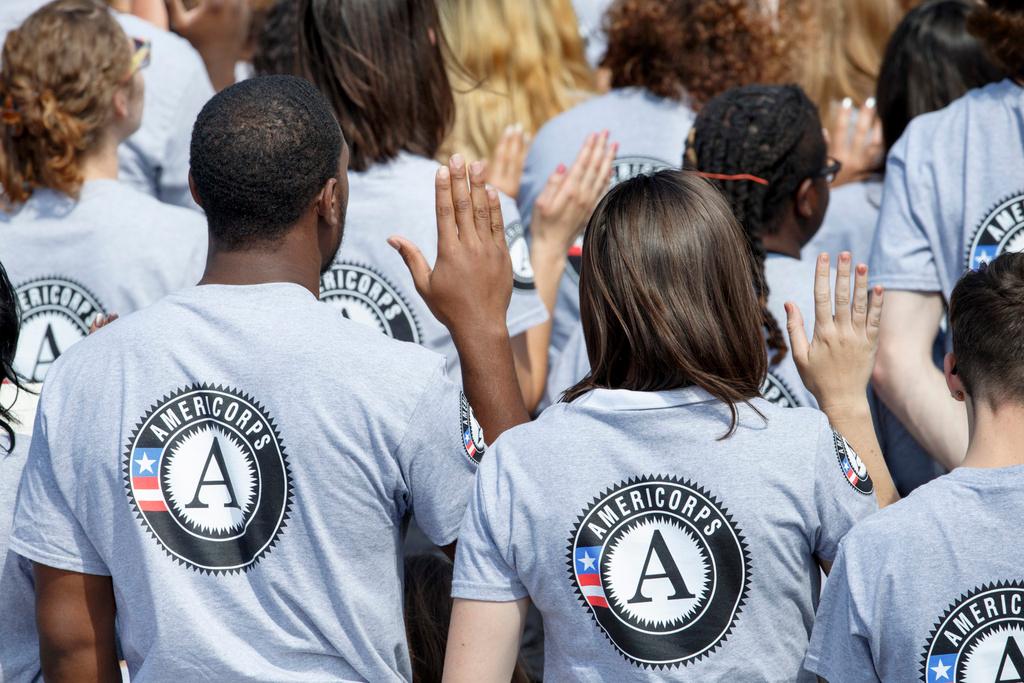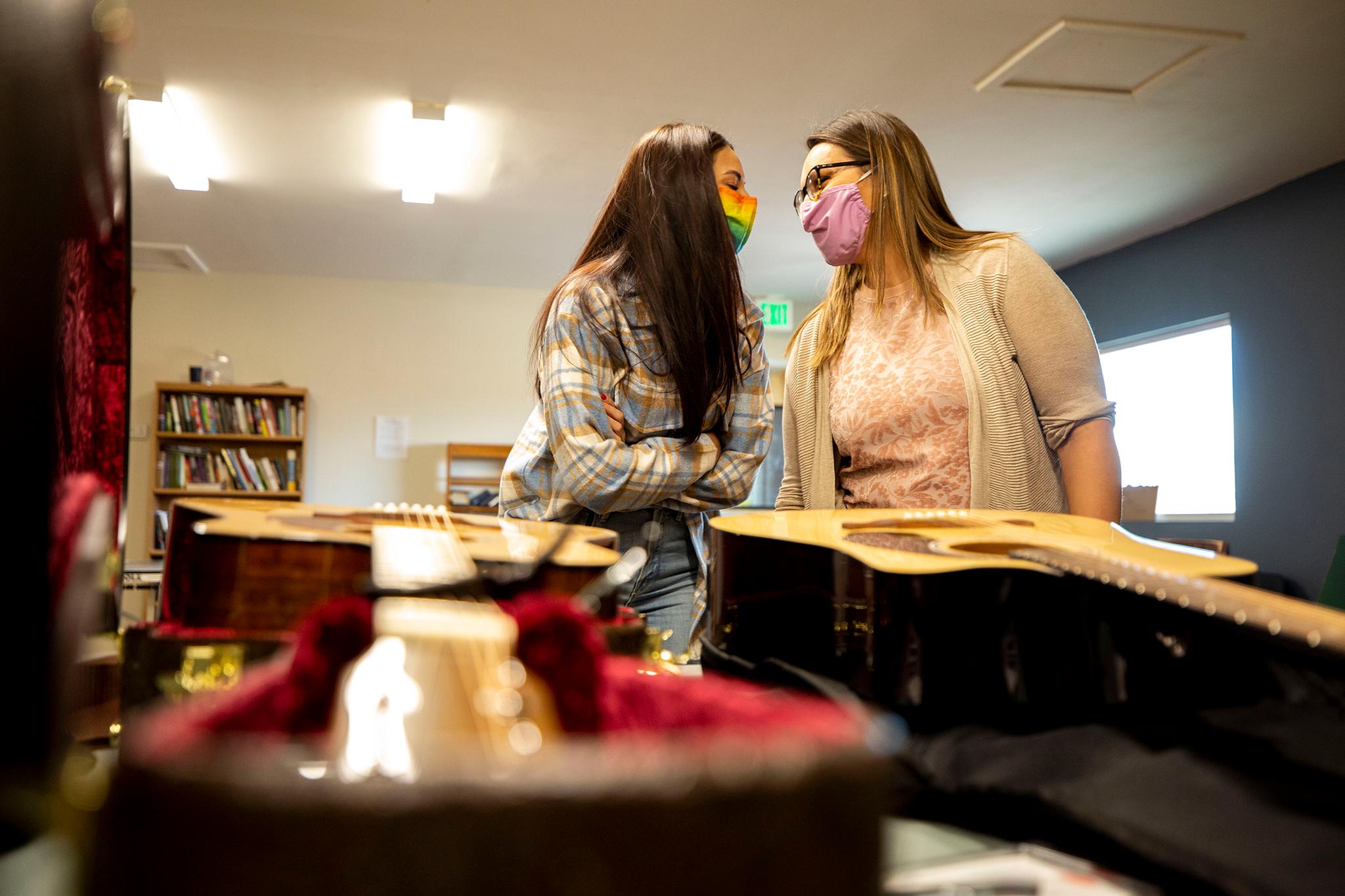
After you get past the goats, donkeys, roosters and cattle, you will see the music room at Harvest Farm, a substance abuse support center. The room is housed in an unassuming red building next to a dirt road.
Inside, Brooke Perez holds a clear, thick plaque imprinted with a photo of her late siblings, Krystle and Kevan.
Perez and a few members of her family were visiting Harvest Farm to drop off a load of music equipment, including cymbals, guitars, drum pedals and a keyboard. The gear was purchased with money raised by KK Fearless, a nonprofit Perez started in February 2018 to provide musical instruments recovery centers like this one.
Before the donations, program supervisor Tyler Zeller said Harvest Farm’s music room consisted only of a drum set and a $100 acoustic guitar.
“I hope they play some of it,” Perez said, unloading equipment. “I’m excited to still set it up.”
Perez planned the October instrument drop-off for months. But her journey started four years ago when she got a late-night call from her mother in February 2017. Perez learned her sister, Krystle, had died from an overdose of heroin and fentanyl, the powerful synthetic opioid. She was 27.
Social isolation and job uncertainty worsened by the pandemic are fueling a surge of substance misuse in Colorado. The increase in drug-related deaths seems to be rising with no clear end in sight.
Overdose deaths statewide have doubled since 2010, driven by the introduction of Fentanyl into Colorado’s drug supply, data show.
Tragedy followed by tragedy
Perez got another midnight call last November. This time it was about her brother, Kevan. He was found dead. A report from the Adams and Broomfield County Coroner’s Office listed it as a suicide, but his family disputes that. They think he incorrectly mixed medication used to treat his anxiety and depression. He was 29.
After her sister’s death, Perez said she grew close to her cousin, who has a brother with an addiction disorder. The two decided to do something, anything, to help avoid another tragedy.
“I don't want her to just be a number,” Perez said. “I don't want her to be a statistic. We need to figure something out and make sure this stops happening.”
The brainstorming led the two to found KK Fearless, named after Perez’s two siblings.
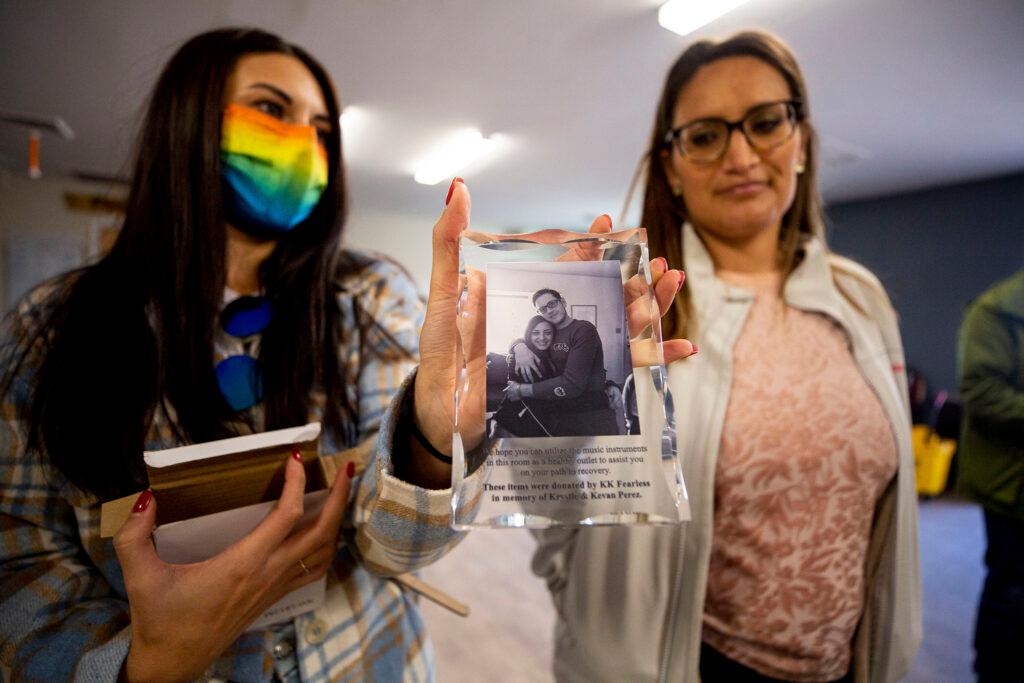
Perez said her brother and sister were both musically talented, the kind of people everyone loved being around. They all grew up around Northglenn, Thornton and Westminster.
“I wanted a drum set for Christmas one year,” Perez said. “They actually took it over and I never got to play it. They ended up playing it all the time.”
The nonprofit’s logo — a hand with a peace sign — shows off Kevan’s creativity. It’s based on a drawing Kevan made of his own hand for Perez and includes a ring inscribed with the word “fearless,” a nod to a ring Krystle used to wear. Perez’s mother now wears it on a necklace.
In some ways, Perez’s nonprofit sprouted out of frustration. A statewide survey released in 2020 found stigma and costs were among the reasons keeping people from seeking alcohol or drug treatment. Before their deaths, both Krystle and Kevan — who died in a sober living facility — had sought treatment in rehabilitation centers.
“We chose to channel that frustration and the lack of the system working for people into something,” said Stephanie Scott, Perez’s cousin.
Soothing pain with music
Nationally, in 2020, more than 93,000 people died from overdoses — nearly the combined capacity of Ball Arena and Empower Field in Denver. Last year also marked a record for Colorado: 1,477 people died from overdoses, a 38 percent increase from the previous year, according to data from the state. Most of those deaths were in Adams, Arapahoe, Denver and Jefferson counties. Overdoses are now on track to break last year’s record.
Perez and Scott hope providing musical instruments to centers like Harvest Farms helps other Coloradans recover from addiction.
There’s evidence the idea could work.
Research suggests that patients, particularly adolescents, are more engaged with therapy and treatment plans when those include music therapy. Several small studies have indicated that music therapy can boost patients’ moods, help them experience positive emotions without turning to substances, and alleviate feelings of stress, anger and depression.
Listening to or playing music, even in informal settings, can help people explore and express emotions and can be particularly effective for women whose needs are not always met through traditional substance abuse disorder treatment.
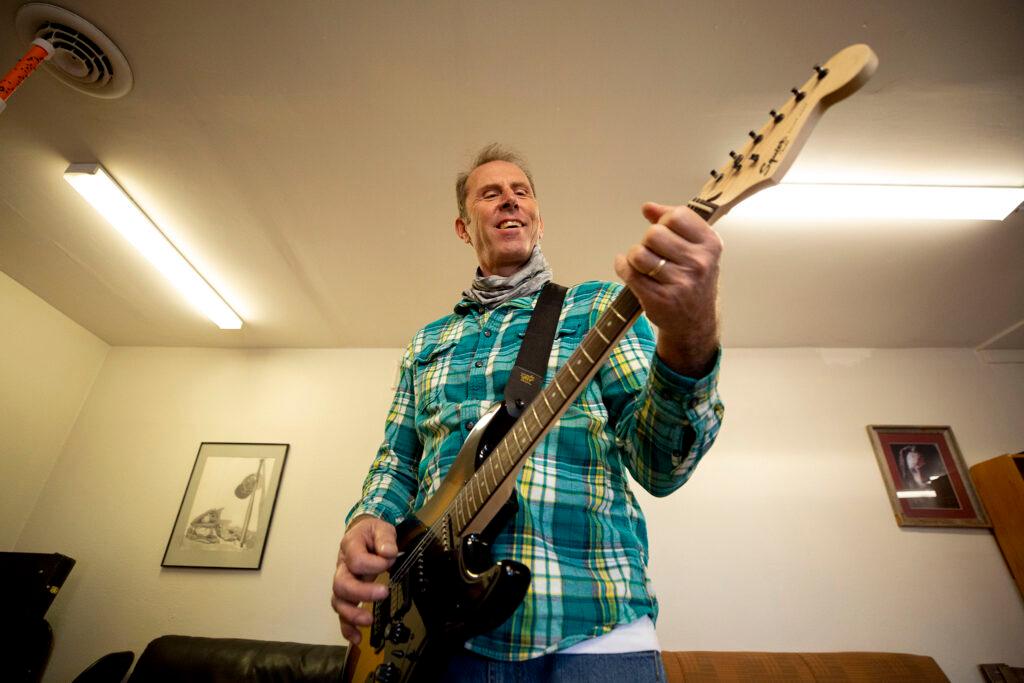
On top of the instrument donations, KK Fearless raised $3,300 for Harvest Farm. Zeller, the center’s program supervisor, said they used the money to buy more music equipment, including guitars, a bass, amplifiers and tuning equipment.
The rest of the money will be used to upgrade a video projection system at the center and buy streaming services, so residents have something to watch during downtime. With the support, a resident has started a music theory class.
Community and Events Specialist Ellis Petrik said Harvest Farm is a sanctuary where men can reset their lives and get a second chance. The goal is not just recovery but teaching them new skills through classes and work therapy, including caring for livestock.
“We just see a lot of lasting changes,” Petrik said.
Harvest Farm is free for residents and has a waiting list. Its programs range from 6 to 13 months and bring in residents from across the country. One resident, 28-year-old Tyler Michael Creed from Wellington, Kans., has been sober for three months. He came to Harvest Farm after staying at a treatment center in Kansas.
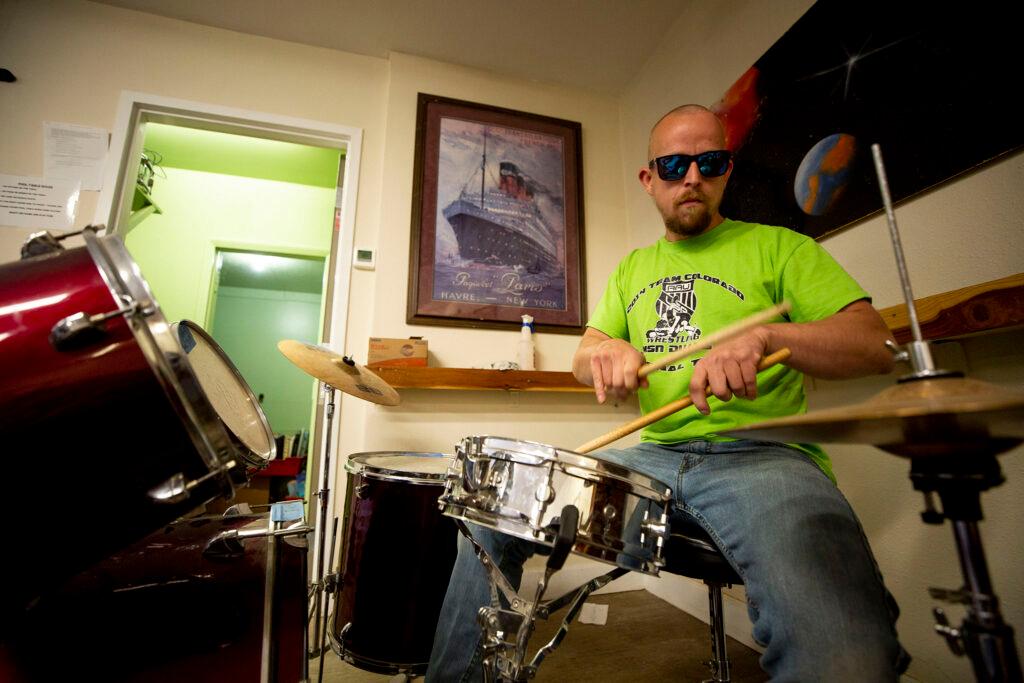
Creed said music helps him spread the gospel. It helps him serve himself, too. Creed said he gets flashes of anger stemming from feelings of abandonment connected to his father. Creed said his father was more of a friend than a guardian and gave him his first drink of alcohol when he was 14.
“It helps me deal with my anger, sometimes, just to let it out on the drums in a healthy way,” Creed said. “I can’t read music or nothing like that, but I can pick up a bass or a guitar and just let my soul speak. It’s really good therapy.”
After Perez and other nonprofit volunteers helped unload the equipment donations, Creed tried out the drum set. It sounded good. He was able to keep a steady rhythm before losing his beat for a bit. Creed started over, this time slower, hitting the hi-hats and snare drum before running through a short drum fill and calling it quits.
“We’ll see you next week!” he said, laughing as he stepped off the stool.
- Heightened stress, isolation and violence has Black teens in metro Denver struggling. These nonprofits are trying to turn hurt into hope.
- Millions in opioid crisis settlement dollars could reach El Paso County. Is it enough to stop the rise in heroin and fentanyl deaths?
- Billions in federal COVID aid presents once-in-a-generation opportunities for Colorado — and some dilemmas

